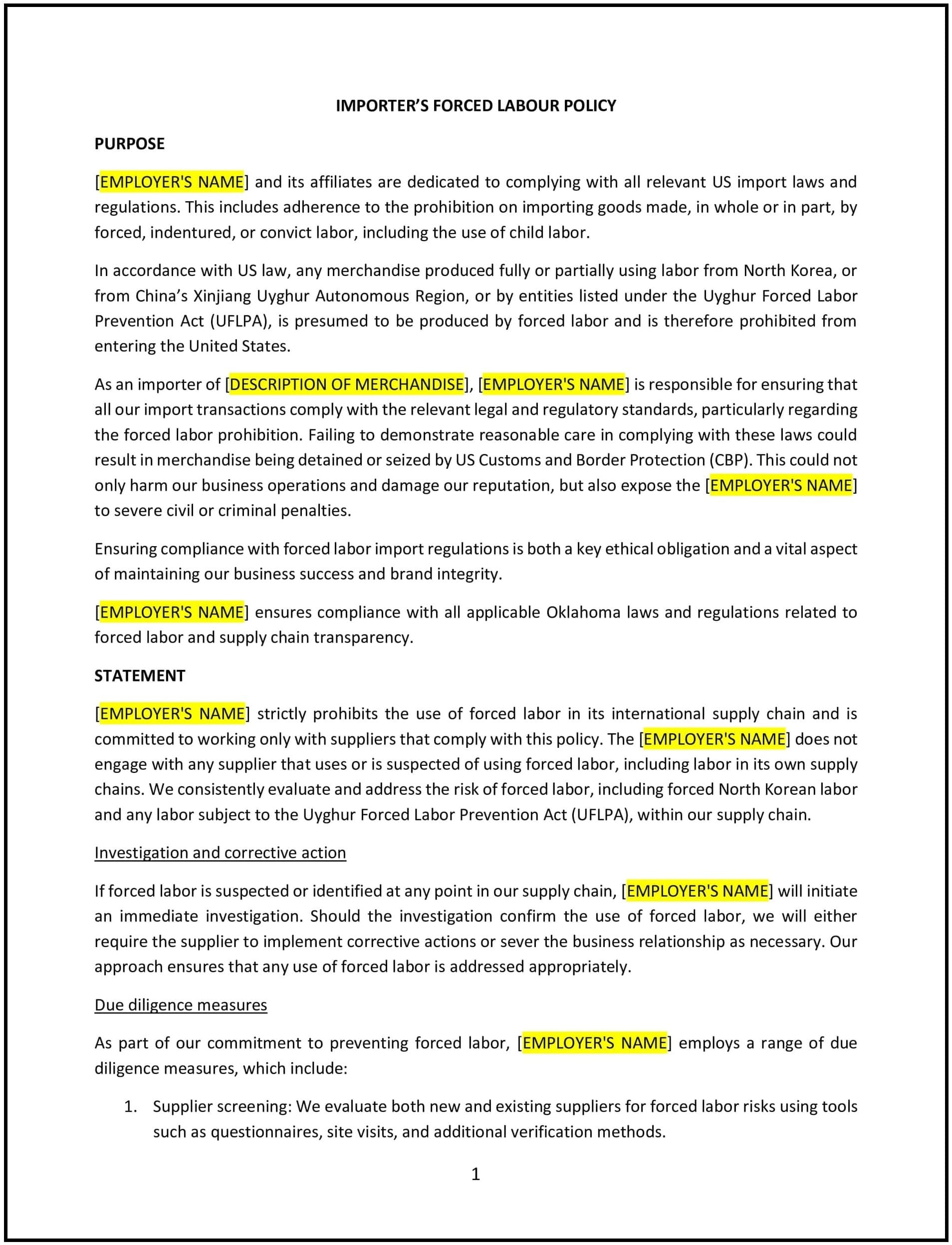Importer’s forced labour policy (Oklahoma): Free template
Got contracts to review? While you're here for policies, let Cobrief make contract review effortless—start your free review now.

Customize this template for free
Importer’s forced labour policy (Oklahoma)
This importer’s forced labour policy is designed to help Oklahoma businesses ensure that imported goods and materials are sourced ethically and do not involve forced labor. The policy outlines supplier due diligence, risk assessment measures, and compliance with U.S. regulations
By implementing this policy, businesses can strengthen supply chain integrity, mitigate legal risks, and demonstrate a commitment to ethical sourcing.
How to use this importer’s forced labour policy (Oklahoma)
- Define policy scope: Establish that the business prohibits forced labour in any stage of its supply chain.
- Conduct supplier due diligence: Require suppliers to provide certifications ensuring ethical labor practices.
- Implement risk assessments: Identify high-risk regions or industries with forced labor concerns.
- Require contract compliance: Include forced labor prohibitions in supplier agreements and procurement contracts.
- Establish monitoring and audits: Conduct regular audits and third-party inspections of supply chain operations.
- Set reporting procedures: Provide a confidential channel for employees, suppliers, or stakeholders to report suspected violations.
- Review regularly: Update the policy periodically to reflect evolving U.S. trade regulations and best practices.
Benefits of using this importer’s forced labour policy (Oklahoma)
Implementing this policy provides several advantages for Oklahoma businesses:
- Strengthens supply chain integrity: Ensures that imported goods are ethically sourced.
- Reduces legal and financial risks: Helps businesses comply with U.S. import laws and avoid customs detentions.
- Protects brand reputation: Demonstrates corporate responsibility and commitment to ethical business practices.
- Enhances business relationships: Encourages trust with ethical suppliers and global partners.
- Reflects Oklahoma-specific trade considerations: Supports businesses that rely on imports for manufacturing and retail operations.
Tips for using this importer’s forced labour policy (Oklahoma)
- Work with ethical suppliers: Establish relationships with vendors that prioritize fair labor standards.
- Conduct supply chain audits: Regularly assess suppliers and manufacturers for forced labor risks.
- Train procurement teams: Educate staff on forced labor indicators and due diligence processes.
- Maintain compliance documentation: Keep records of supplier certifications, audits, and corrective actions.
- Adjust as needed: Update the policy based on regulatory changes and industry developments.